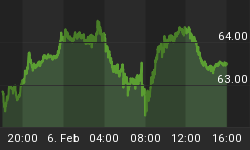This past week the administration announced its choice for the first credit czar at the new Consumer Financial Protection Bureau. This bureau was created as part of the supposed Wall Street reform bill recently passed by Congress. This new bureau, which represents nothing more than another layer of useless Washington bureaucracy, will be housed within the Federal Reserve-- one of the most anti-consumer institutions in Washington.
The appointee named to run the bureau is an Ivy League professor. By her own admission she is an academic, not a business person. She has very little real world business experience with the highly complex financial instruments she will oversee. The administration has done nothing to refute her characterization by some in the financial press as an anti-business, ivory tower leftist with an aversion to free market principles.
She also admits to being told, or warned, that the big banks always win in Washington - yet she trumpeted the creation of this new agency as a win against those banks. I would caution her against declaring victory too soon.
Outrageously, she has been appointed as a "special advisor" to design and lead the bureau, but the administration has not disclosed the exact length of her term. There will be no Senate confirmation hearings, nor will the public or the financial industry be allowed to comment on her appointment. We simply are expected to accept the appointment of an enormously powerful regulator without question, and without regard to the constitutional requirement that the Senate advise and consent with regard to her appointment. This means you, as a voter and citizen, effectively have no say whatsoever for the duration of her appointment. In the meantime, she has unprecedented new powers over private business decisions.
The truth is that this new bureau is just more of the same ineffective and damaging regulation we typically get from a crisis. Just as the FDA serves big pharmaceutical companies, not patients, and just as the SEC serves Wall Street, not investors, this agency will end up serving the banks. All regulatory agencies eventually become co-opted by the industries they regulate, and they become chiefly concerned with restricting the entry of new competitors and protecting market share for the big players. This new bureau is not likely to straighten out Wall Street, so much as it will instill a false sense of security in the public about banking and investing again.
No bureaucrat, no federal agency, and no ivory tower academic can replace the regulatory powers of the free market. "Caveat emptor" remains the rule for intelligent investors and depositors. Buyers always need to beware, especially when politicians say they have it all under control.
Real reform starts with transparency and an adherence to the rule of law. The administration would do well to adhere to the law, rather than shoving a new economic czar down our throats without congressional involvement. Real reform would mean taking steps toward restoring sound money and getting back to the Constitution. The Constitution does not allow for favors to special interests, or handing out public money to keep private businesses afloat. The Constitution necessitates a small, impartial government that first and foremost, protects liberty, and sees all citizens as equal. It does not recognize a special banking class. The fact that measures to achieve these ends are still quashed tells me that indeed, the banks do still win in Washington.















